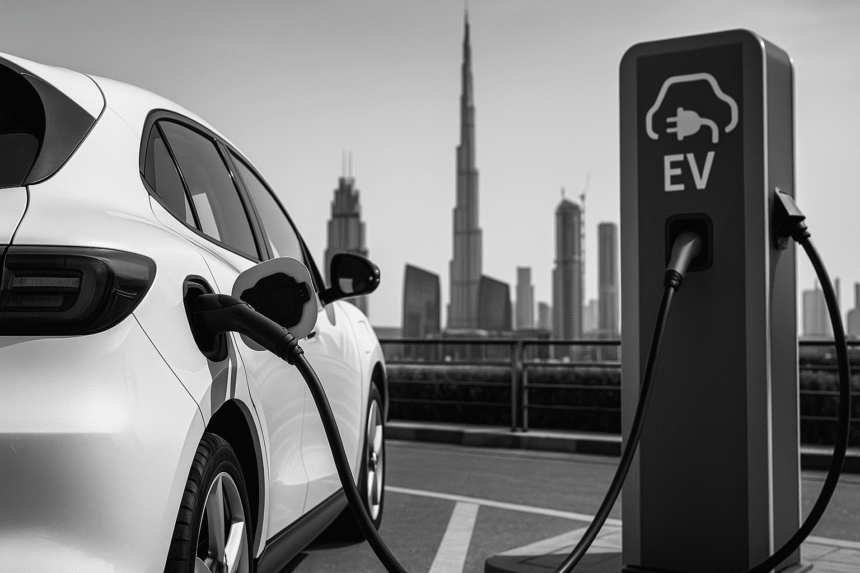How to Charge an Electric Car in Dubai: Full Process Guide
With the electric vehicle (EV) market accelerating in the UAE, understanding how to charge an electric car in Dubai has become critical for drivers, fleet managers, and mobility infrastructure stakeholders. Whether you operate a business with electric fleets or you’re entering the public charging network as an investor, this guide walks you through the entire process from locating a charger to final payment.
Where to Find EV Chargers in Dubai
Dubai’s EV charging network is expanding under the supervision of DEWA (Dubai Electricity and Water Authority), which operates the Green Charger initiative. As of 2025, EV chargers are widely available in:
- Public parking areas (municipality-managed lots)
- Shopping malls and hotels
- Government buildings
- Petrol stations (ENOC/EPPCO)
- Selected residential communities and business hubs
To locate charging stations:
- Use the DEWA app (Green Charger map)
- Download third-party platforms like PlugShare or ChargeMap
- Look for signs labeled “EV Charging Point” in high-traffic zones
How to Activate a Charger in Dubai
Most EV chargers in Dubai are semi-automated and require authentication. Here’s how to activate one:
1. DEWA Green Charger Network
- Register your EV and get a DEWA EV Green Charger Card
- Tap the card on the charger to start
- Alternatively, use the DEWA app to scan a QR code or start charging remotely
2. Private Chargers (Commercial Locations)
- Use the charger’s dedicated app or RFID tag
- Some locations offer activation via customer service staff
Activation time typically takes less than 30 seconds if your account is pre-registered.
Payment Methods and Pricing
EV charging in Dubai can be free or paid, depending on location and vehicle type.
Free Charging
- DEWA Green Charger program offers free charging for UAE-registered private EVs (only until the end of 2025)
- Some malls and office buildings offer complimentary charging for loyalty program members
Paid Charging
For paid locations:
- Rates vary between 29 fils/kWh to 65 fils/kWh, depending on the charger speed (AC vs. DC fast charging)
- Accepted payment methods include:
- DEWA Green Charger account balance
- Credit/debit card via the app
- Charging platform e-wallets (e.g., Shabik, EVBox)
A typical full charge for a mid-sized EV (40 kWh) costs around AED 15–25 at public fast chargers.
Types of Charging Stations and Connectors
EV drivers in Dubai will encounter multiple charger types:
| Charger Type | Speed | Common Locations | Connector Standard |
|---|---|---|---|
| AC Type 2 | Slow/Moderate (7-22 kW) | Malls, hotels | Type 2 (Mennekes) |
| DC Fast | Fast (50-150 kW) | Petrol stations | CCS2 or CHAdeMO |
| Ultra-Fast | 150 kW+ | Selected locations | CCS2 |
Make sure your EV model supports the connector before arriving.
Access Rules and Eligibility
Dubai has rules in place to manage grid usage and avoid misuse of public chargers:
- Only registered EVs with Dubai plates are eligible for DEWA’s free charging
- Maximum parking duration at EV bays is usually 4 hours (after which fines may apply)
- Commercial fleets must use commercial EV accounts (not subsidized)
Visitors or tourists with non-UAE plates may have limited access to DEWA Green Charger services and must rely on private chargers.
Conclusion: Make Charging a Strategic Advantage
Charging an electric car in Dubai is increasingly simple, but navigating apps, accounts, and access rules can be confusing without guidance. For decision-makers, it’s not just about plugging in—it’s about understanding policy-driven advantages, infrastructure design, and user preferences.
Whether you’re managing a fleet, evaluating land use for charger deployment, or offering EV charging as a service, having a full understanding of how to charge electric car in Dubai allows you to turn clean mobility into commercial opportunity.



Leave a Reply